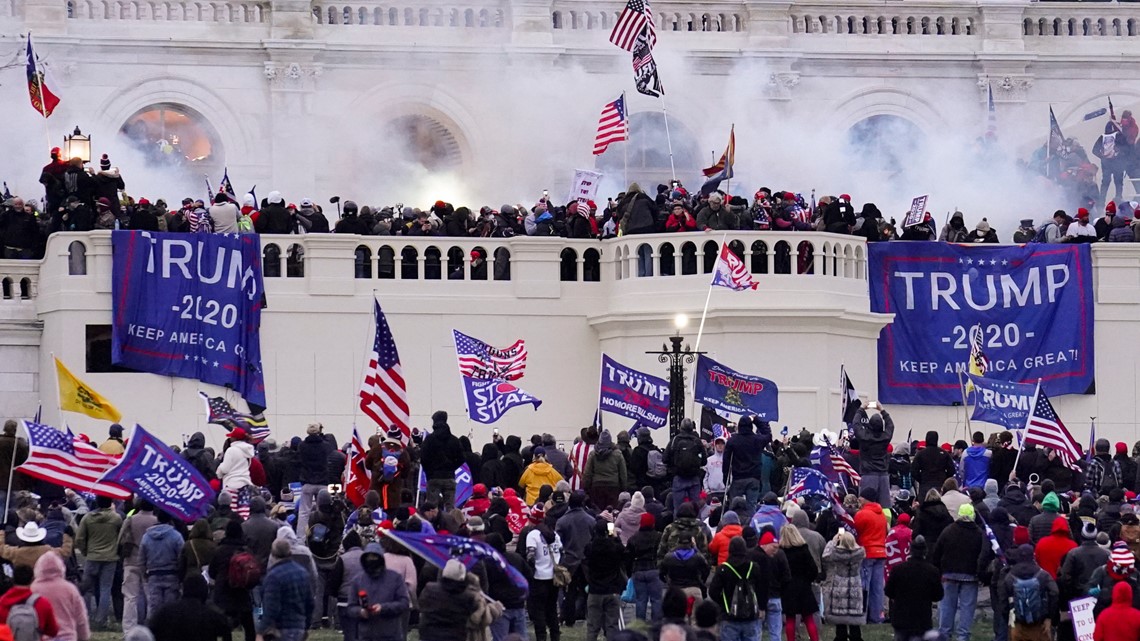This was not an insurrection. Not one person was convicted of insurrection despite what some folks think.
Yes, it's dismaying how people throw words like 'treason' and 'insurrection' around without even trying to think about how they should be used. ('Treason' is a favorite word for rightwingers to describe Mr Biden's actions, a use even less justifiable than the Left's use of it to describe 6 January.)
The first problem is that social reality is more complicated than our words can precisely describe. It's a spectrum, with multiple dimensions, and words are discrete. And people use them to mean different things.
So rather than argue about whether 6 January 'was' an 'insurrection' or a 'riot' [and sentence about politics with the 'to be' verb should be scrutinized closely -- those interested can Google Alfred Korzybski and 'General Semantics'] -- let's look at all the possibilities of violence directed towards governments.
I wont' prejudge things by using words like 'riot' and 'insurrection' at first. I'll just call them 'mass actions', with the understanding that they are accompanied by violence -- as opposed to peaceful demonstrations or even sit-ins or other forms of civil disobedience. Then we can argue about what words might apply to what.
(1) A general mass action, to
show unhappiness with something some branch of the government has done. In the US, this has, for the last fifty years, almost always been a Black thing, except for some "mini-riots" of students during the Vietnam war (I took part in one, in Bezerkeley, at that time.). There is no practical aim, other than "Don't do this sort of thing again" or "stop doing it" or a general expression of discontent.
The key thing is that there is no intent to replace the existing government by force.
The George Floyd riots, and all the other ghetto riots starting in the 1960s, were like this. Property is destroyed randomly -- ordinary shops and cars are set on fire. If the lumpenproletariat is involved, there will be looting. Random thugs may take a few shots at the police. If there is a racial angle, members of the hated race may be attacked just for being the wrong race.
[
Attack on Reginald Denny - Wikipedia ]
(2) A mass action that results from some particular thing the government (its agencies) are trying to do, or stop from being done. This sort of action has a definite aim (not of replacing the government, but of
pressuring it do something specific, or to
prevent it from doing something). In the 1930s, we had some labor union disputes like this.
The
Minneapolis general strike of 1934 grew out of a
strike by
Teamsters against most of the trucking companies operating in
Minneapolis, the major distribution center for the
Upper Midwest. The strike began on May 16, 1934 in the Market District (the modern day
Warehouse District). The worst single day was Friday, July 20,
called "Bloody Friday", when police shot at strikers in a downtown truck battle, killing two and injuring 67. Ensuing violence lasted periodically throughout the summer.
[
Minneapolis general strike of 1934 - Wikipedia]
(3) A mass action that
aims to replace the existing government. In this case, there may or may not be masses of people in the streets, but there will an organized attempt to seize power. This will involve arresting or killing leaders of the existing government, seizing the news media, putting up roadblocks to stop enemy reinforcements moving, making sure the military (if it's not involved already) is neutralized.
(If it's the military alone doing the action, albeit with the support of a section of the population, it's not really in the category of mass actions we're talking about here ... we call that a 'coup' or a 'putsch'. Latin America saw lots of these, often with the support of the American government.)
If the recent Brazilian events prove to have had some serious organization behind them, aiming to replace the Lula government,
The classic account of this kind of mass action is Trotsky's
History of the Russian Revolution. [
Leon Trotsky: The History of the Russian Revolution (1930) ] A classic account of failed attempts at such actions is "A. Neuberg's [it's an alias]
Armed Insurrection.
[
Armed Insurrection - A. Neuberg (1928) ]
(Trotsky shows you how to do it. The other book -- a collective effort by various Comintern leaders -- shows you how not to do it. The secret? You must wait until conditions are right.)
(4) A mass action that is a hopeless, romantic gesture. The Easter Rising in 1916 in Ireland was like this. Had the insurrectionists waited until Britain declared conscription in Ireland, and had they first taken other steps to swing public opinion their way ... they may well have won. [
Introduction - The Hay Plan & Conscription In Ireland During WW1 - Waterford County Museum ]
It wasn't accidental that this Sacrifice of Irish patriots took place during Easter. But it was a waste.
I've probably missed some other variants.
So, what was 6 January? I think it is closest to being
(2). Not a general expression of discontent, not an attempt to put in a new government, but an attempt to make it do something it wouldn't otherwise have done. 'Riot' doesn't quite fit, because it had a definite, focussed aim, but neither does 'insurrection', because it didn't aim to replace the existing government.
Maybe someone can come up with a new word.
A note to patriots: read that book by Trotsky referenced above -- you can download it free. You will deepen your understanding of the times we're headed for, and how to get through them successfully, enormously.



